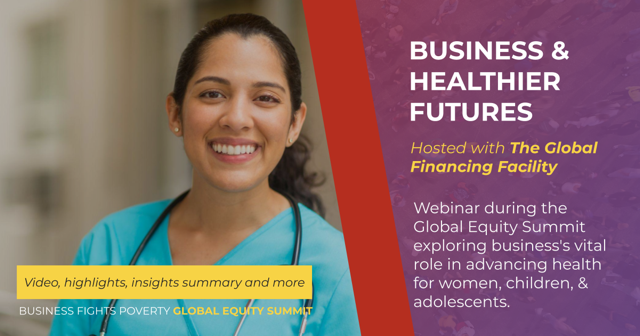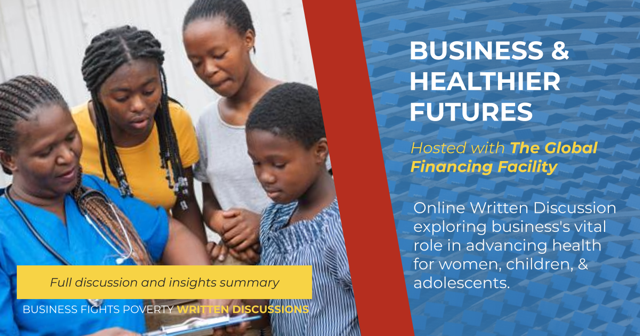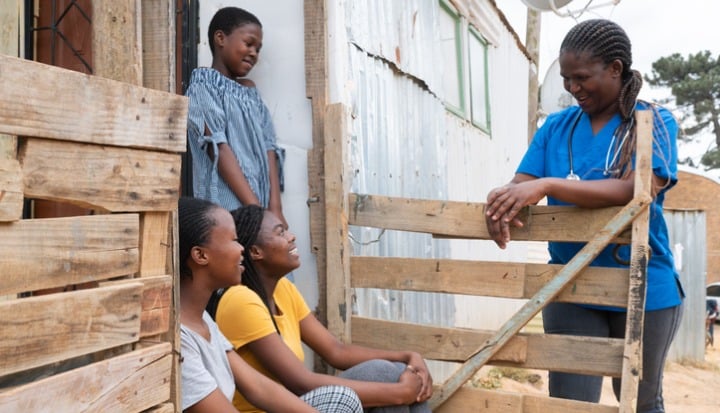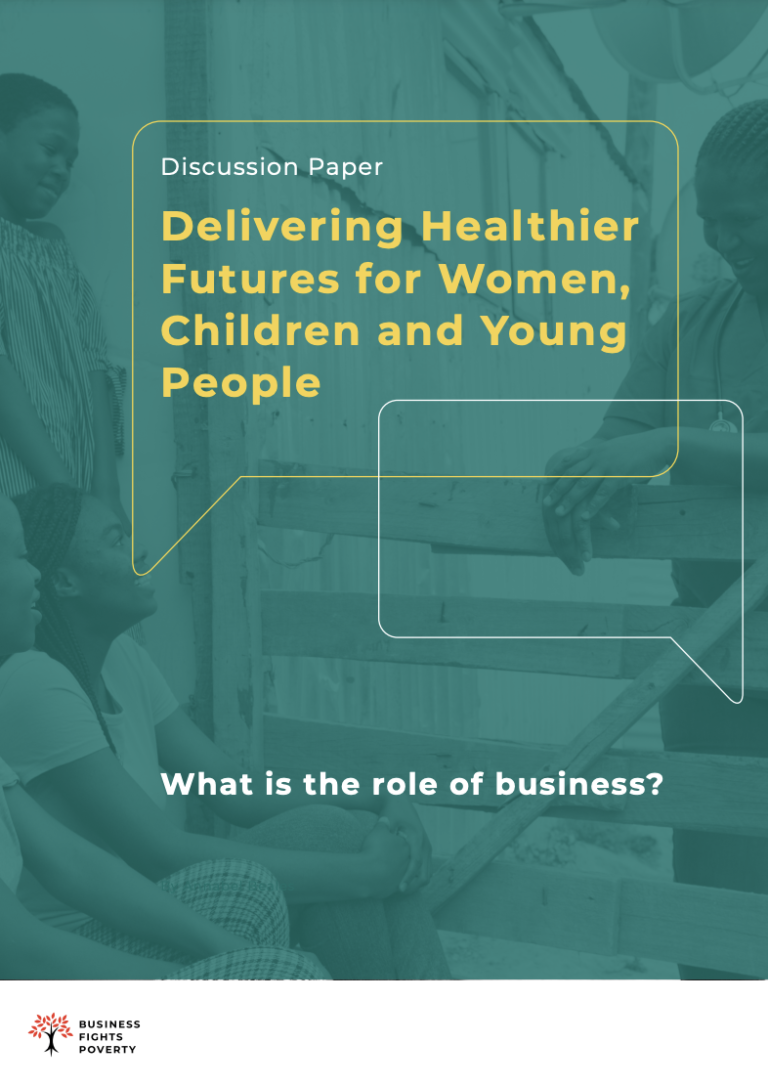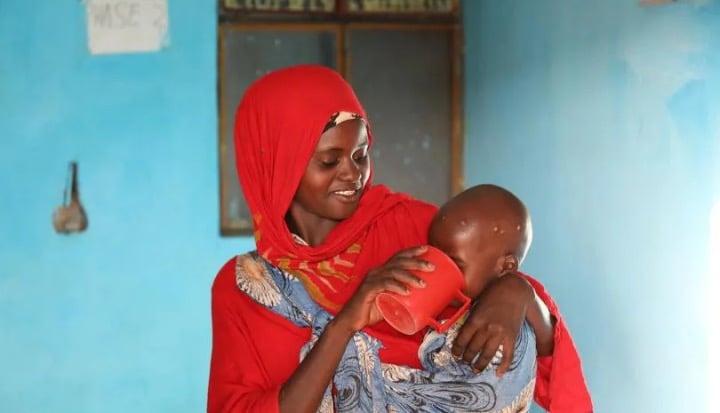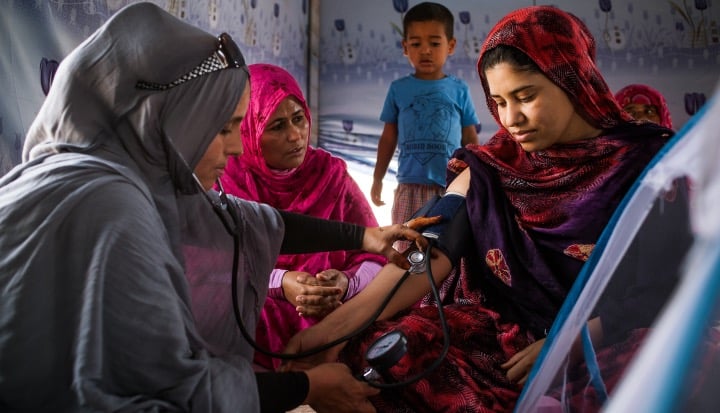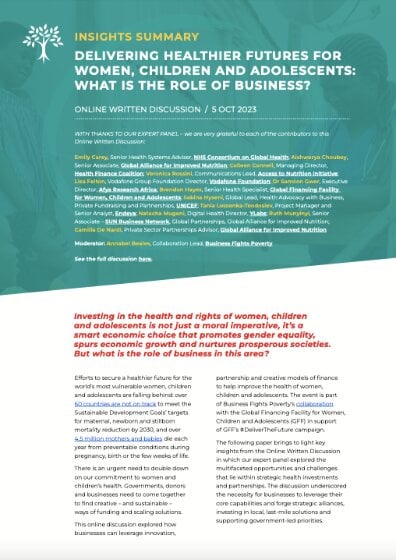Hosted with the Global Financing Facility Discover the pivotal role of businesses in advancing health for women, children, and adolescents with The Global Financing Facility. Learn about the latest insights on how cross-sector collaboration and financial strategies are crafting healthier generations, and from practitioners on innovative approaches for impactful investment in global health systems. Speakers: Lilia Zakirova, Healthcare Public Policy Director, Eastern Europe Middle East and Africa, MSD Sneha Kanneganti, Private Sector Lead, Global Financing Facility Sue Tym, Social Impact Portfolio Senior Manager, Primark Ronald Wakhu, Senior Associate, Health Finance Coalition Maziko Matemba, Director, HREP-Malawi & Global GSOs Representative, GFF Investors Group Moderator: Annabel Beales, Collaboration Lead, Business Fights Poverty

